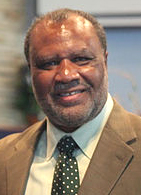
MESQUITE, Texas (BP) — Enough is enough. Christian brothers and sisters, it’s time to put away the biased thinking that keeps us divided and embrace all people in godly love. Our lost world will never change unless the people of God acknowledge the pain of all people groups.
Our hearts are broken over the killing of police officers in Dallas and Baton Rouge, La., but we should also have broken hearts over every black life taken by police over seemingly minor offenses — whether the deceased was guilty or innocent. To see men and women die for what at times appear to be trivial reasons provokes despair in the black community. It is our hope that all Americans will love and respect the law enforcement officers who protect us, but the trauma experienced by black Americans over police shootings makes that more challenging for some at times.
Amazingly, in America, we have lived so long with racial bias that often we don’t recognize why people of other races are hurting. The people of God must open our eyes, ears and hearts to the lives and struggles of others. Will God hold Christians accountable only for loving brothers and sisters who look like themselves or for loving all the human family? The apostle John answers in 1 John 4:20-21 by stating, “If anyone says, ‘I love God,’ and hates his brother, he is a liar; for he who does not love his brother whom he has seen cannot love God whom he has not seen. And this commandment we have from him: whoever loves God must also love his brother.”
When the love of God is missing, the world becomes a wicked place and we find ourselves asking tough questions. What is happening in America when Micah Johnson, a 25-year-old black man, takes a gun into Dallas and kills five white police officers in the name of racial hatred? How powerful is racial hatred when a white man, Dylann Roof, walks into a black church prayer meeting in South Carolina and kills nine church members after joining them in prayer? What causes a police officer to kill a man over such trivialities as selling cigarettes, selling CDs on the streets or having a broken taillight? What fear is in the hearts of police officers that causes them to kill a 12-year-old boy playing in the park with a toy gun?
An even more important question should be asked by the body of Christ: When will Christians love all people enough to stop the madness in our land? Professing followers of Jesus who persist in racially divisive rhetoric must be reminded of Peter’s words in Acts 10:34-35, “Truly I understand that God shows no partiality, but in every nation anyone who fears him and does what is right is acceptable to him.”
“Lives Matter” should be the church’s rallying cry. It is a call to help heal the hurts endured by people from all races. The power of love born in the hearts of the people of God is the only answer for the racial issues that exist in America. When the church is committed to live as Jesus commanded, she can teach the world that the love of God is able to deliver from racial hatred. Yes, all lives matter to born-again Christians who are committed to live by the Word of God.
Some emphases and tactics of the Black Lives Matter movement may be objectionable to some believers, black and white, who love Jesus and genuinely long for racial reconciliation. Yet the fundamental emphasis of the movement should resonate with all Christians. It is a call to see the pain of black Americans who are losing their lives for senseless reasons. This emphasis does not reduce the importance of white lives, brown lives, red lives or yellow lives. Black lives are a part of “all lives.” Therefore, black lives matter.
The power of love within Christianity has been a source of healing for many in the black community. When America deemed blacks chattel slaves and subhuman from 1619-1865, then considered them second-class citizens through the Jim Crow era, black lives did not matter to too many. During those periods, African Americans found comfort in Jesus’ promise “to proclaim good news to the poor … freedom for the prisoners and recovery of sight for the blind, to set the oppressed free” (Luke 4:18).
This Scripture remains key to healing our country today. Fifty-one years after the abolition of the Jim Crow laws, residual racism remains in many hearts. For some, a feeling of superiority over blacks is manifested through fear of blacks or the belief they are at fault in instances of police brutality because they “provoked” abuse.
In light of this bleak past, the final question Christians must consider is how history will record our handling racial tension in present-day America. Will we walk in the power of love or yield to the wiles of Satan through hatred, racism and divisiveness? We all need each other’s understanding to overcome these perilous times. Let’s be intentional and love everybody.

















